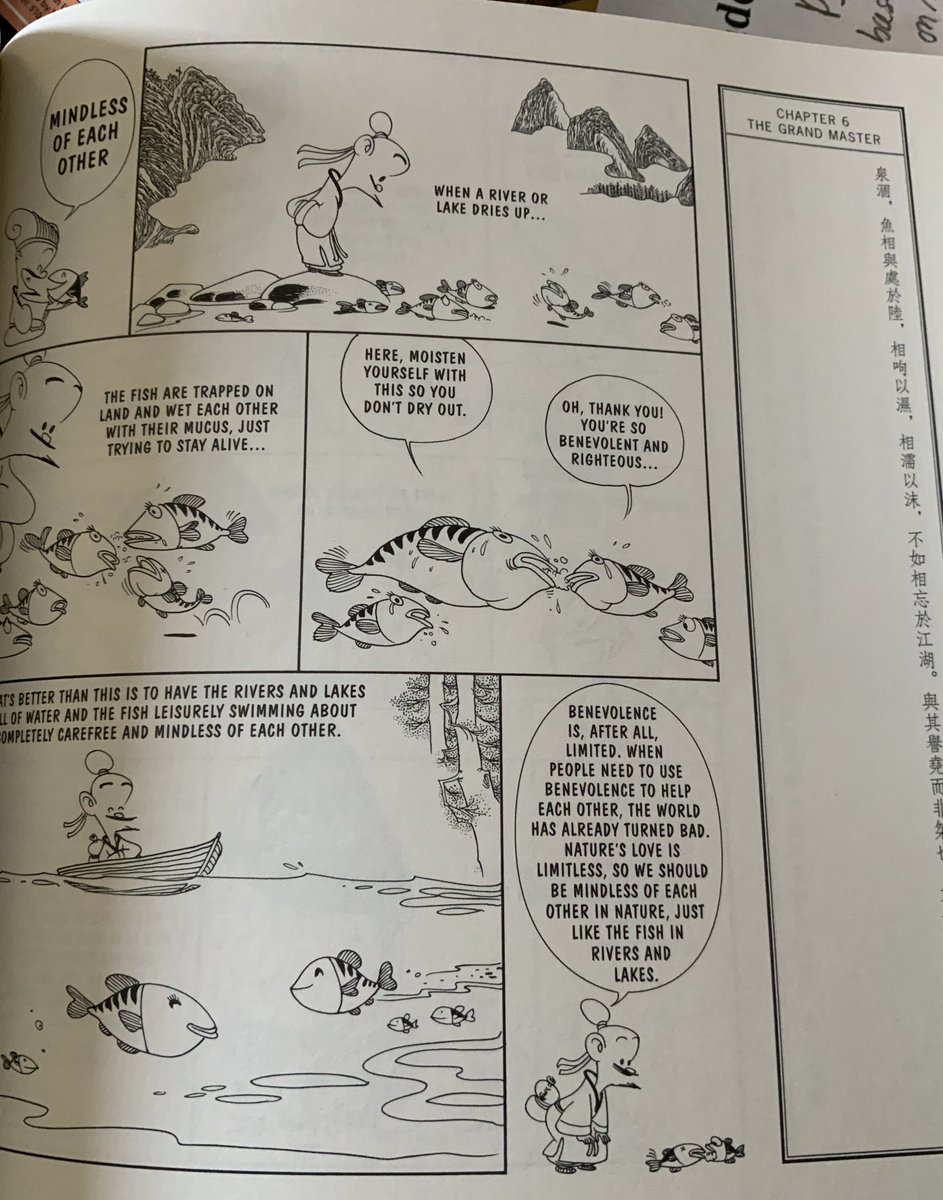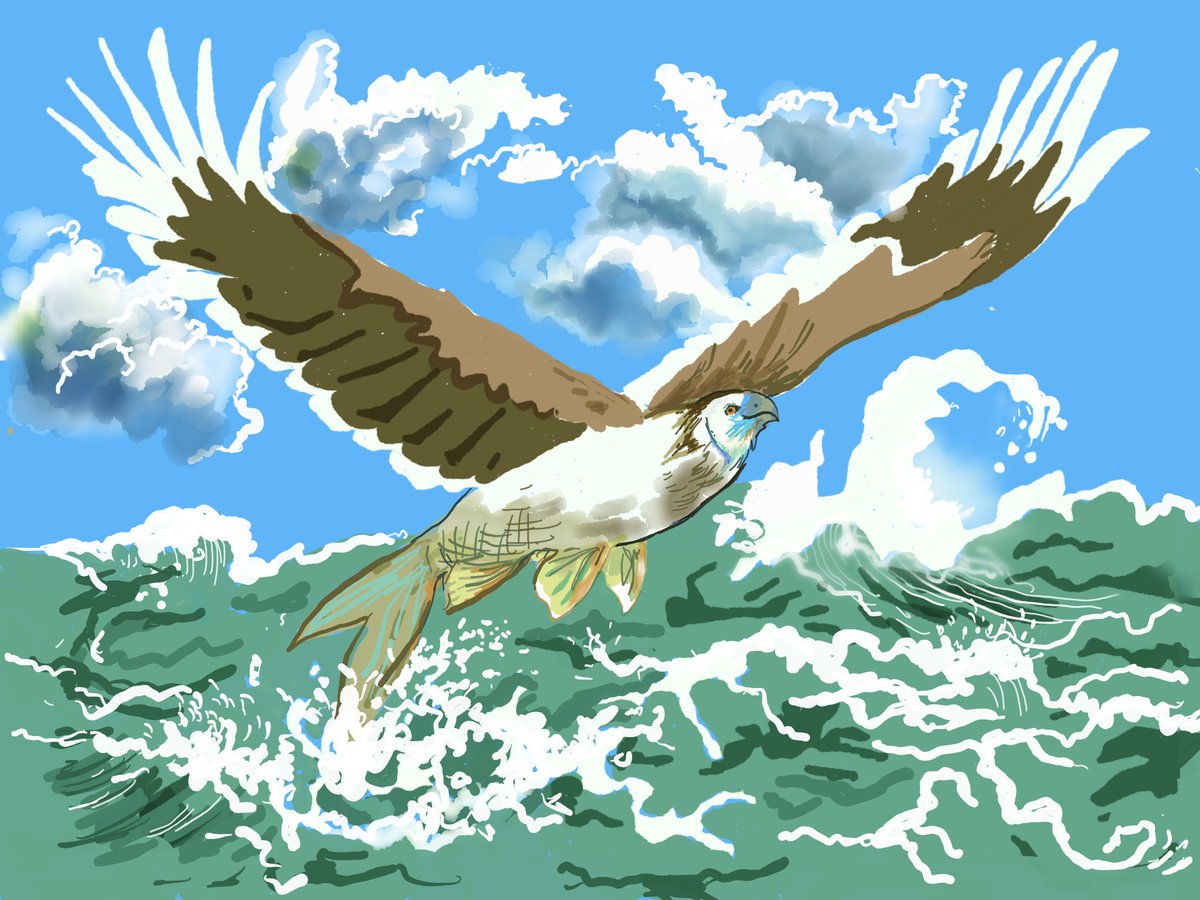For my philosophy of religion class today #PORcourse we will look at Daoism, particularly the disagreement between Daoists and Confucians on how to find the way (the dao).
There& #39;s an enduring tension between ritual and authenticity in ancient Chinese philosophy 1/
There& #39;s an enduring tension between ritual and authenticity in ancient Chinese philosophy 1/
In fact, that philosophical tension you can even see in contemporary stories, such as this Taiwanese drama (on Netflix), which examines whether the male protagonist should live an authentic life or live a life that& #39;s pleasing to his parents 2/ https://mydramalist.com/21078-the-king-of-romance">https://mydramalist.com/21078-the...
As Graham notes, Whereas European philosophers have focused on the question "Where is the truth?" the main concern with Chinese philosophers has been "Where is the way?" - the word for way, both metaphorical and literal (i.e., doctrine), is 道 (dao) 3/
https://www.amazon.com/Disputers-Tao-Philosophical-Argument-Ancient/dp/0812690885">https://www.amazon.com/Disputers...
https://www.amazon.com/Disputers-Tao-Philosophical-Argument-Ancient/dp/0812690885">https://www.amazon.com/Disputers...
We can situate early Daoism and Confucianism in the Spring and Autumn Period (771-476 BCE) and the Warring States Period (481/403 BCE - 221 BCE). Classical Chinese philosophical schools responded to the breakdown of social and political order, caused by warring factions 4/
... a period of political turmoil: "Their [the rulers& #39;] courtyards and buildings are well-kept, but their fields are ill-cultivated, and their granaries very empty." (dao de jing, 53)
This followed the breakdown of the Zhou dynasty, which unified much of China until 7th cBCE 5/
This followed the breakdown of the Zhou dynasty, which unified much of China until 7th cBCE 5/
You still had the nominal leadership of the Zhou, but de facto dukes of individual states (fiefdoms) vying for power. Every state for itself. They warred until 7 major kingdoms remained in the Spring and Autumn period. They continued to fight--think Game of Thrones. 6/
In the light of the breakdown of the social order, Confucians and Daoists came to very different conclusions. The Confucians doubled down on personal virtue and on cultivating yourself through ritual, cultivating virtues such as benevolence (ren 仁) and righteousness (yi 義) 7/
The sage-kings of the Zhou dynasty (before it fell apart) such as King Wen and the Duke of Zhou were seen as moral exemplars, who had it all figured out and who had created the right rituals and laws for us to observe. If only we did that, the social order would be restored. 8/
The Daoists thought it had all started to go downhill with the sage-kings. Instead of rituals (which the Confucians saw as a way to make us civilized and harmonize us), Daoists prize a more authentic, simpler way of being that is less focused on externalities 9/
Note, authenticity in Daoism is different from the western quest of finding "your true self" (which you see in e.g., existentialist authors such as Sartre and Fanon). Rather, authenticity is living in line with the cosmic principle of the Dao. 10/
The way to illustrate the difference between Confucians and Daoists in this respect is best done with examples. Here are some stories from the Zhuangzi, a foundational Daoist text from the Warring States period, around 4th century BCE. 11/
This is a page from CC Tsai and Bruya& #39;s rendition of Zhuangzi as a comic (Princeton, 2019). Zhuangzi likens the stifling Confucian rituals and cultivating benevolence and righteousness as fish on dry land trying to moisten each other. Much better if they can just swim freely 12/
Similarly, in other passages (chapter 8, fused toes), Zhuangzi says that having benevolence and righteousness is like having fused toes or a sixth finger. It& #39;s fine to be born that way. But if you weren& #39;t born with a sixth finger, why would you want to have one? /13
In a similar vein, if you are born as someone who is naturally benevolent and righteous, then sure, why not. But you really shouldn& #39;t cultivate that if you aren& #39;t born that way. So here Zhuangzi takes issue with Confucians who say we need to mould ourselves through ritual /14
The most well-known Daoist text is undoubtedly the Daodejing (classic of the way and virtue), a 6th century compilation attributed to Laozi, a semi-legendary figure. It is one of the most-translated texts ever (together with the Bible and the Gita) /15
But interpreting the text is incredibly difficult. If you come to the Daodejing cold without knowledge of Chinese philosophy, it& #39;s completely obscure (I tried this a few years ago). Here are lots of translations of the opening: /16
http://bopsecrets.org/gateway/passages/tao-te-ching.htm">https://bopsecrets.org/gateway/p...
http://bopsecrets.org/gateway/passages/tao-te-ching.htm">https://bopsecrets.org/gateway/p...
The Way is a perfect and transcendent principle that is even more fundamental than Heaven or Earth. It is so transcendent that it cannot be named, the only thing you can say about it is what it is not. Yet it is styled (named as) "the way". /17
Laozi believed it all started to go horribly wrong when people began to cultivate virtues, he thinks it& #39;s hypocrital. Note the skepticism about benevolence (仁), righteousness (義) and wisdom (智) which are highly prized by Confucian philosophers /18
https://ctext.org/dictionary.pl?if=en&id=11609">https://ctext.org/dictionar...
https://ctext.org/dictionary.pl?if=en&id=11609">https://ctext.org/dictionar...
Laozi thinks we need to go back to the time before the sage-kings of the Zhou dynasty and he praises the skillful masters of old time, who had not lost the dao (way) yet, and who were unpretentious. /19
https://ctext.org/dictionary.pl?if=en&id=11606">https://ctext.org/dictionar...
https://ctext.org/dictionary.pl?if=en&id=11606">https://ctext.org/dictionar...
A major theme in Daodejing is wu wei 無爲, which is commonly translated as “non-action”. Suffering, violence and political upheaval in the world can be cured not by ritual, as the Confucians thought, or by rigid ethical principles, as the Mohists believed, but by non-action /20
There are different interpretations of wuwei. It could literally mean not doing anything and retreating into a cabin in the mountains rather than engaging in the world, as the Daodejing recommends. But there is also a different meaning in the Zhuangzi /21
We know little about Zhuangzi except that he lived in the state of Song, Warring States period, 4th. c BCE. He did not use the term "Daoism" himself. The Zhuangzi consists of three parts: inner chapters, outer chapters, miscellaneous chapters 22/
Traditionally, only the inner chapters, which are the first 7 chapters are attributed to Zhuangzi, but we do not know as the text was subject to significant editorializing later on 23/
You need to read Zhuangzi to experience for yourself how the text is at once profound, puzzling and playful. The opening of Zhuangzi begins with a weird story of a fish that turns into a bird, doves, cicadas, tortoises, etc here /24
(all drawings mine)
https://ctext.org/dictionary.pl?if=en&id=2717">https://ctext.org/dictionar...
(all drawings mine)
https://ctext.org/dictionary.pl?if=en&id=2717">https://ctext.org/dictionar...

 Read on Twitter
Read on Twitter



